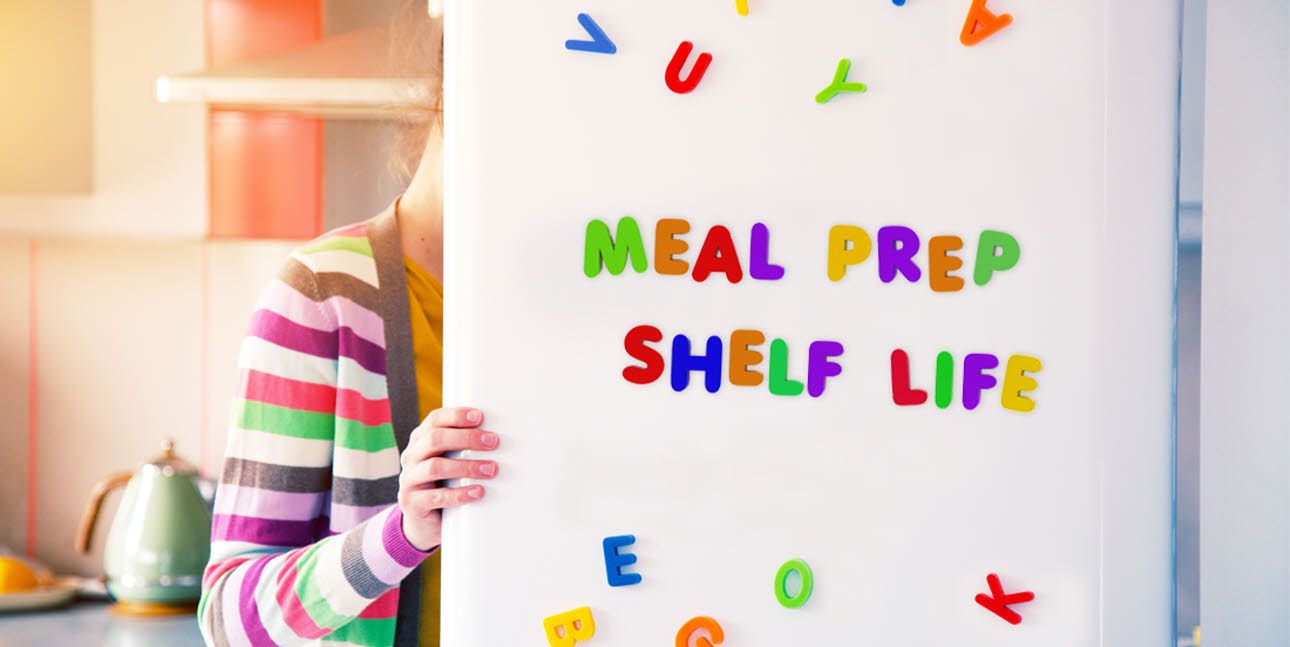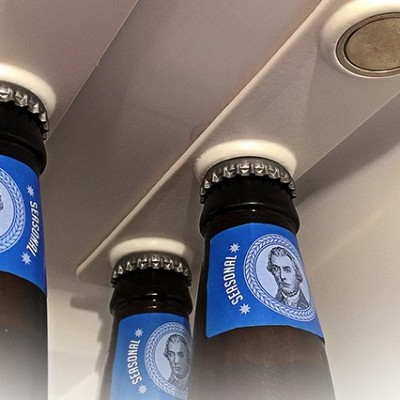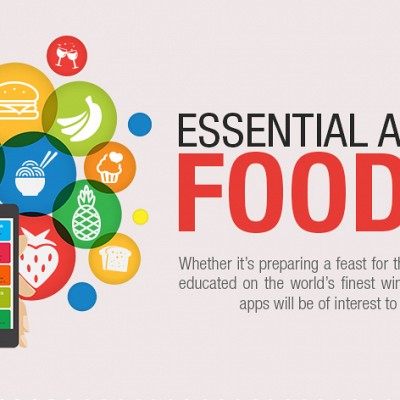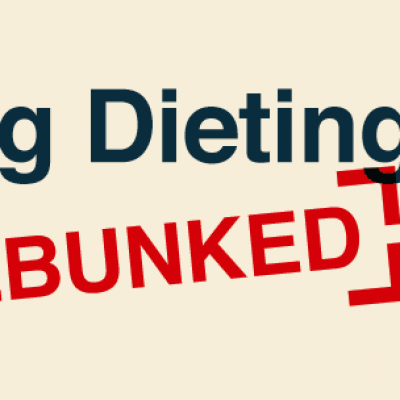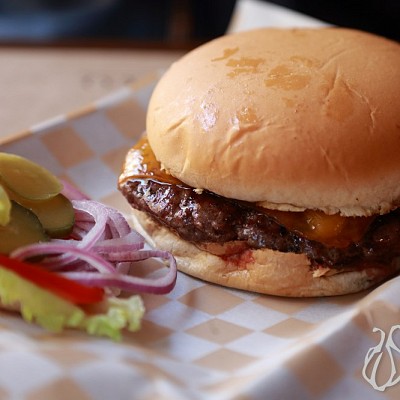Meal prep is different for everyone, whether you like having every meal accounted for, or just having your breakfast ready to go, there’s no doubt it can save you time and money. The question is – how long do your favorite foods and meals actually last?
For example, did you know once you combine chicken with a sauce i.e. soup, the shelf life on average reduces by four days.
To help you plan your meals as well as possible, we’ve put together this handy meal prep cheat sheet that shows you how long your carefully cooked and prepped foods last for.
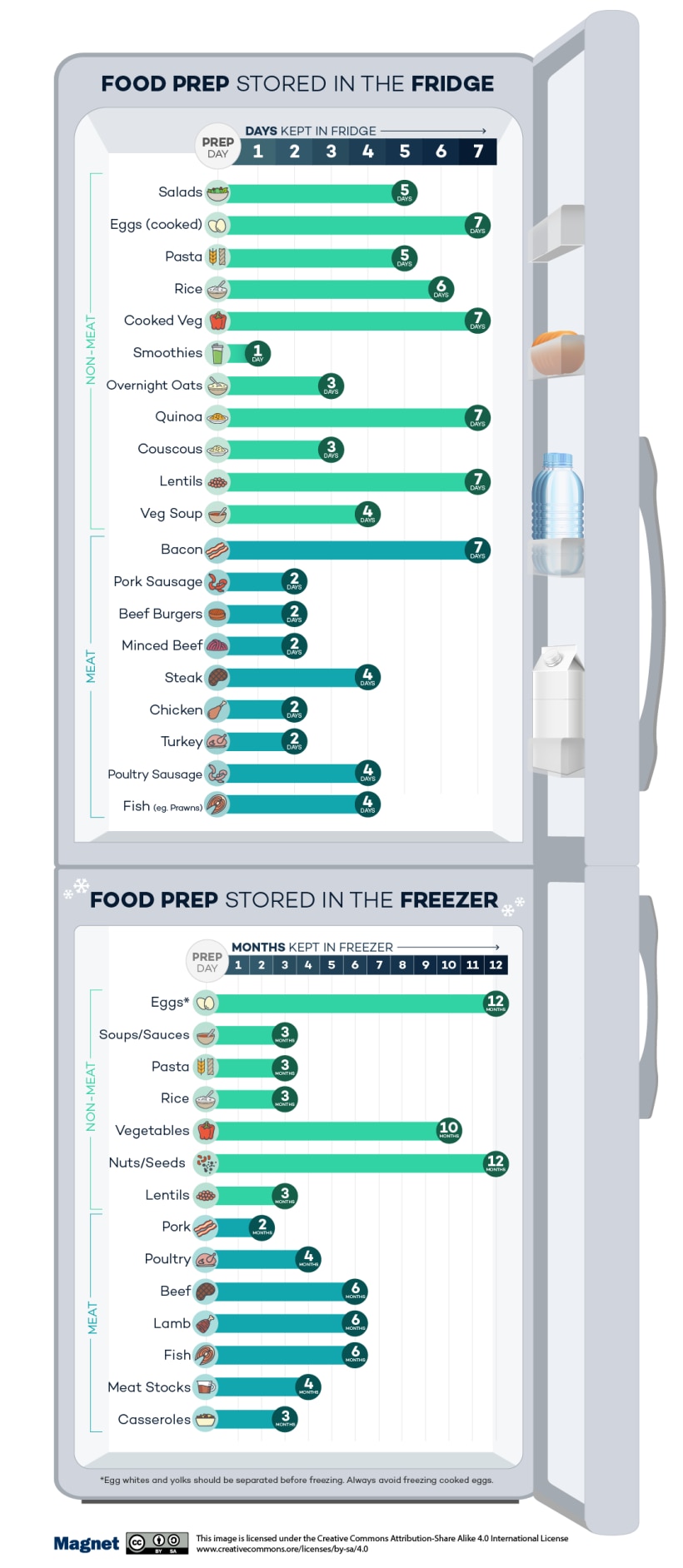
There isn’t an exact science, and most foods are still edible (if no longer full of flavor) for a day or two after their shelf life expires, but it’s a great guide for knowing how long foods last in the refrigerator before you eat or freeze them. On that note, we've created a handy freezer chart too, so you never have to bin or waste food again.
You’ll notice that many foods suitable for vegetarians and vegans last longer than cooked meats and fish. Superfoods like quinoa can keep in the fridge for up to a week once cooked – making meal prep Sundays even more of a breeze.
Things to know:
- Be aware that some foods you buy ‘fresh’ could have already been frozen during the shipping process. Refreezing these can cause them to go rancid during the thawing process, so always check the label
- On the topic of freezing, only freeze food once. Refreezing and thawing your food a second time can cause harmful bacteria to grow
- Plan, plan, plan! Combining ingredients affects shelf life. As a marker, always go off the ingredient with the shortest individual shelf life
- If you’re a fan of fruit smoothies and overnight oats, it’s best to eat them within 24 hours. Fruit oxidizes and your healthy snack can quickly turn into a fizzy mess.
- When defrosting meat, do so slowly, preferably by placing in the fridge over a few hours to avoid any sudden build-ups of bacteria.
- Whilst cooked eggs last up to seven days once refrigerated, they shouldn’t be frozen. The exception is raw egg yolks and egg whites, so long as they’re separated.
- Practicing proper food hygiene also ensures your food is safe, lasts longer and you prevent foodborne illnesses.
- As a rough guide, preparing your meals up to four days in advance is perfect, as most ingredients can last this long once prepared. Good quality containers will ensure that your food keeps its freshness for longer.


















